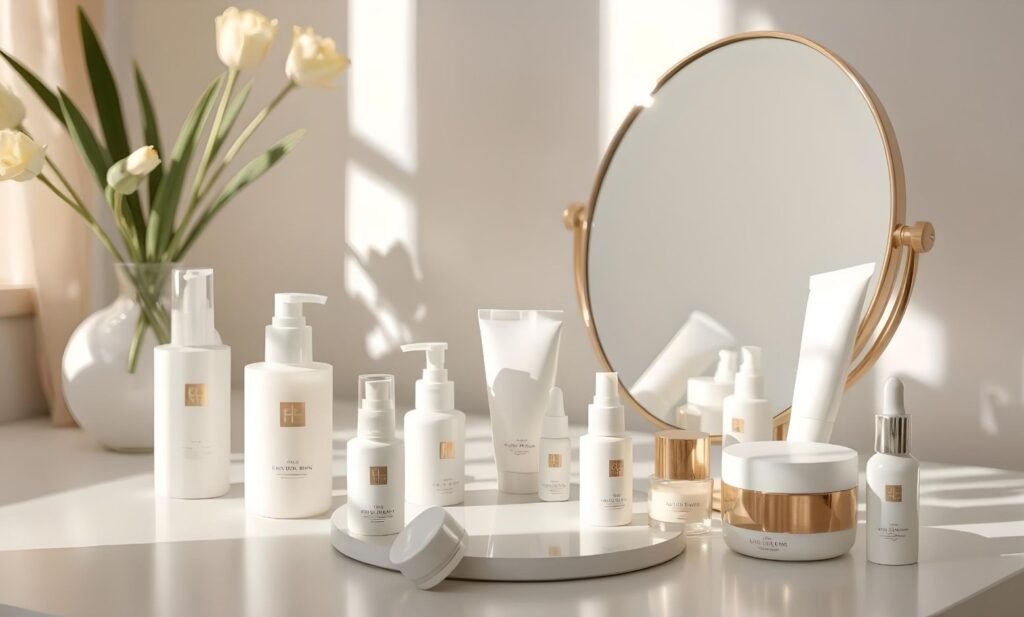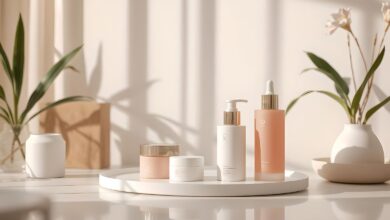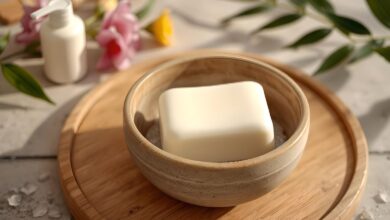Is Hyaluronic Acid Good for Oily Skin?

Got oily skin and wondering what’s really worth adding to your skincare routine?
Get ready because we’re diving into the world of hyaluronic acid (HA) to see if it’s truly a friend for oily skin types. Here’s a hint: you might be in for a pleasant surprise!
So, is hyaluronic acid good for oily skin? Let’s dive in and find out! We’ll clear up some common myths, break down the science, and see if HA might just be the secret ingredient your skin’s been waiting for.
What is Hyaluronic Acid?
HA is a natural superstar when it comes to hydration. It’s already in your body—found mainly in the skin, eyes, and joints—and can hold up to a thousand times its weight in water. This fantastic trait makes it a hydration hero, keeping skin soft, smooth, and naturally dewy.
As we age, though, the body’s HA production declines, leading to drier skin and less joint cushioning. Many believe this drop in HA is part of why we notice skin and joint changes as the years go by.
To help with this, HA is often used in skincare products like serums and creams, and it even comes in supplements and injections. In cosmetics, there are different forms of HA designed to get the most out of it. From the basic form that sits on the surface of your skin to the more potent forms like Sodium Hyaluronate, which goes deeper, HA can work wonders at all levels.
HA is generally safe and effective for most people, whether applied to the skin or taken as a supplement.
It’s known for its wrinkle-reducing, skin-plumping effects in skincare, and it might also help with joint lubrication. Some evidence suggests that HA supplements might aid in managing osteoarthritis, though further research is needed to confirm this.
Although more research is needed on its full range of benefits, HA remains a top pick in beauty and wellness circles.
Why Does Your Skin Get Oily?
Your skin naturally produces oil to stay hydrated and protect itself, but if you’ve got oily skin, it’s just making a little too much. This excess oil can often clog pores, making oily skin more prone to breakouts. The main culprit? Sebum—a natural mix of lipids from the sebaceous glands. It’s good for our skin in moderation, but too much can leave you feeling slick and shiny, sometimes with unwanted acne.
Various factors play into how much oil your skin produces. For instance, men tend to have more sebum because of higher testosterone levels, while women may see oilier skin around ovulation. Weather, too, has an effect: in humid climates and during spring or summer, sebum production often ramps up. Factors like stress, genetics, and hormone fluctuations can also make your skin oilier, as can certain medications or even puberty.
Keeping oily skin balanced without stripping it of its natural moisture is critical. The goal is to find products that help regulate oil while keeping your skin hydrated. Using lightweight, non-greasy skincare that won’t clog pores or make things slicker is the first step toward managing oily skin.
Hyaluronic Acid for Oily Skin: How Does It Help?

Let’s clear up a big myth: oily skin doesn’t need hydration. Actually, it does! When oily skin lacks moisture, it can overcompensate by producing even more oil. Giving your skin the hydration it’s craving can help reduce that excess shine.
Hyaluronic acid is a humectant that works like a sponge to pull moisture from the air and hold it in your skin. This keeps your skin plump and well-hydrated without adding any greasy feel. When your skin is hydrated, it’s less likely to go into overdrive with oil production, making it a secret weapon for managing oily skin.
Here’s the fantastic part: HA has even been shown to regulate sebum production, making it great for those with overly oily skin and even for managing scalp issues caused by excess oil. So, more hydration really can mean less oiliness—proof that oily skin and HA can be a perfect match!
So, what can hyaluronic acid do for oily skin?
Hydration Without Greasiness: Hyaluronic acid pulls in moisture from the environment and deeper layers of the skin, delivering serious hydration without adding any greasiness—a big win for oily skin types.
Balances Oil Production: Hydrated skin helps balance out oil production. HA’s moisturizing effects make your skin less likely to produce excess oil, meaning a less shiny face over time.
Hydrates and Prevents Breakouts: By keeping skin hydrated, HA reduces the risk of dryness that can lead to breakouts. So, it’s a gentle way to keep skin clearer overall.
Improves Skin Texture: HA also smooths and refines skin texture by maintaining moisture levels, which can help minimize the appearance of large pores—perfect for oily skin!
Strengthens the Skin Barrier: Well-hydrated skin has a stronger barrier, meaning less oil buildup and better defense against environmental stressors that can trigger oiliness, irritation, or aging.
Anti-Aging Perks: Beyond oil control, HA hydrates deeply, plumping out fine lines and boosting collagen, which keeps skin looking firm and smooth. HA is a fantastic option if you have oily skin and want anti-aging benefits.
Plays Well with Other Ingredients: HA pairs beautifully with a range of skincare ingredients like salicylic acid, niacinamide, and retinol, plus vitamin C, AHAs, and BHAs—making it a versatile addition to any skincare routine.
Hyaluronic Acid Skin Care Products for Oily Skin

To get the most out of hyaluronic acid for oily skin, ensure you’re picking the right hyaluronic acid skincare products. Go for oil-free or gel-based serums made specifically for oily skin—they’re super light and won’t leave a greasy layer behind.
Using it correctly is vital, too. Start with a gentle cleanser suited for oily skin, then follow with an alcohol-free toner. While your skin’s still a bit damp, apply a few drops of your hyaluronic acid serum. Wet skin helps HA attract and keep in moisture even better!
After the serum soaks in, layer on a lightweight moisturizer to seal in that hydration and prevent moisture from escaping. And for the daytime, finish off with an oil-free, broad-spectrum sunscreen. Sunscreen is essential for protecting all skin types—oily included—from UV damage.
Conclusion
So, is hyaluronic acid good for oily skin? It sure is!
HA can be a real game-changer for oily skin! Its lightweight, non-greasy formula gives you the hydration you need without adding extra shine. If you’re looking for a skincare ingredient that gets what oily skin needs, hyaluronic acid might be your perfect match. Plus, it’s excellent for improving skin texture and overall look.
Just make sure to pick a hyaluronic acid serum that suits your skin type so you can soak up all the benefits of this magical ingredient in your routine. And remember, everyone’s skin is unique, so if you have specific concerns, it’s a good idea to check in with a dermatologist for personalized tips. Happy hydrating!



